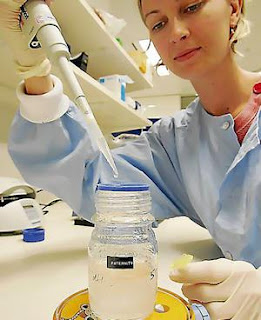 |
| Infertility Support Forum |
'I felt really desperate all the time; always thinking I wasn't going to meet someone in time. It's an awful lot of pressure. It used to consume me. I was going out on dates and meeting people, but never meeting somebody that I wanted to spend the rest of my life with" Susan, 34
Changing expectations
We have much more freedom than our mothers or grandmothers, and there is no longer the same pressure on couples to marry, settle down and start families. Women may not feel the need to have a male provider, and marriage is no longer an institution everyone has to buy into. However, most of us do still grow up believing that we will probably share our adult lives with someone else, but women often wonder how long they should spend waiting for Mr Right when they are getting older and less likely to conceive.
No one expects to find themselves in this situation, but when you are leading a busy life it can just seem to creep up on you. Women who have very successful careers often find that there is little time left for their personal lives, and although making the decision to have a child by yourself involves a huge shift in hopes, dreams and expectations, it may be a logical way forward for women who haven't found a partner but know they want children.
Not all women who opt to have children by themselves set out with the deliberate intention of doing this. Some women do have unplanned pregnancies, or get pregnant with a partner who finds he cannot commit once they are pregnant, and must then decide whether to go ahead with the pregnancy alone or to have a termination. For women who know they want to have a child, and who may be worried that they are approaching the end of their reproductive lives, this may feel like an opportunity to become a mother that they cannot miss.
The wrong relationship
Men don't have biological clocks, and although there is some evidence that they may become less fertile with age, they certainly don't have the same time pressures. Men in their thirties may feel that they would like a family one day, but have no great motivation to get on with it sooner rather than later. It can be difficult for a woman who knows she wants to be a mother, yet finds herself with a partner who is not ready for the responsibility.
'I was going out with somebody who was a commitment phobe. He kept making it sound as if we were going to start trying for a baby and get married at any minute, but nothing ever happened. He spent the whole time insisting that he wanted to have children, and he was very convincing. Twice he said he'd try for a baby and then changed his mind and said he couldn't do it.' Thea, 39
Finding yourself with a partner who doesn't want a child when you are determined you do is not only a problem for heterosexual women. Lesbian relationships can be affected in just the same way.
'I'd been in a long-term relationship, and it split my relationship up. I was purely interested in getting pregnant. I think she was quite angry with me because she didn't want me to be making that choice. She thought I was choosing it over being with her, being in a relationship,. Ellie, 44
Thinking It Through
Having a child by yourself is not a decision anyone takes lightly, and most women spend a great deal of time considering the consequences and implications of opting to become a lone parent before going ahead. There are some key areas that can cause problems, and you will want to have thought through them first. To find out more, you can check out Infertility Support Forum.




